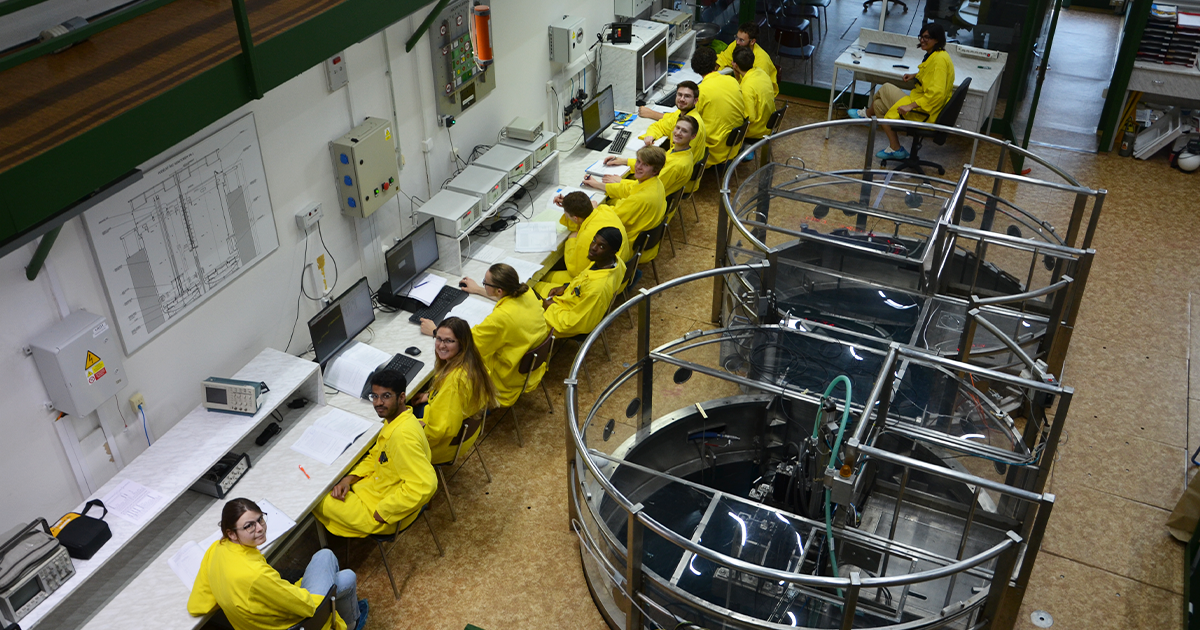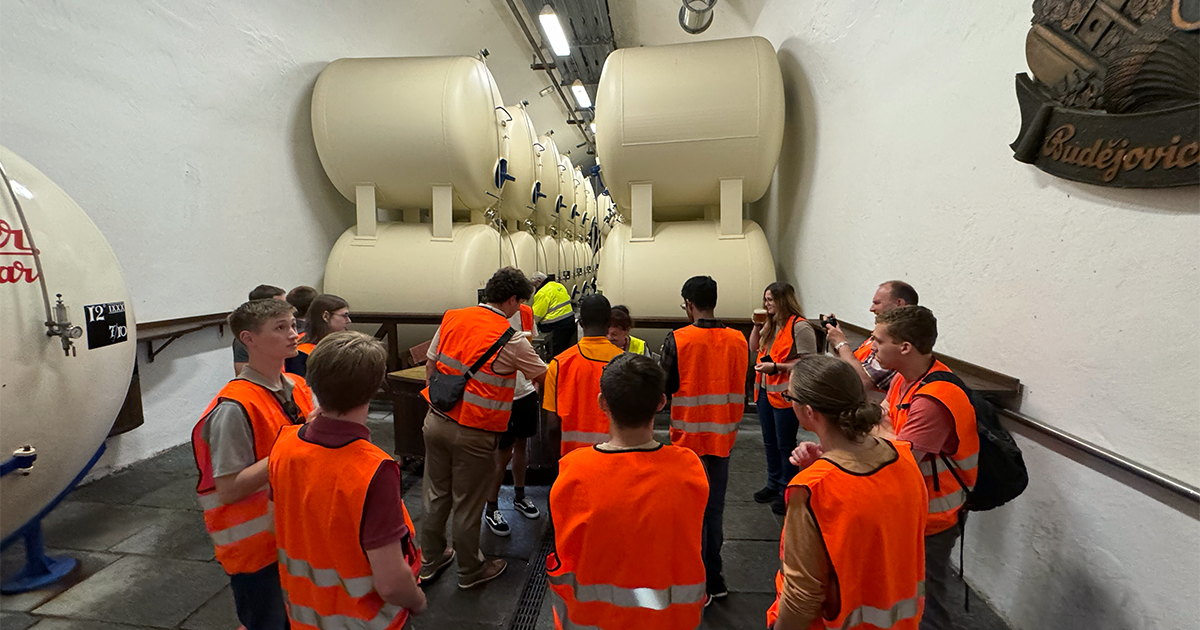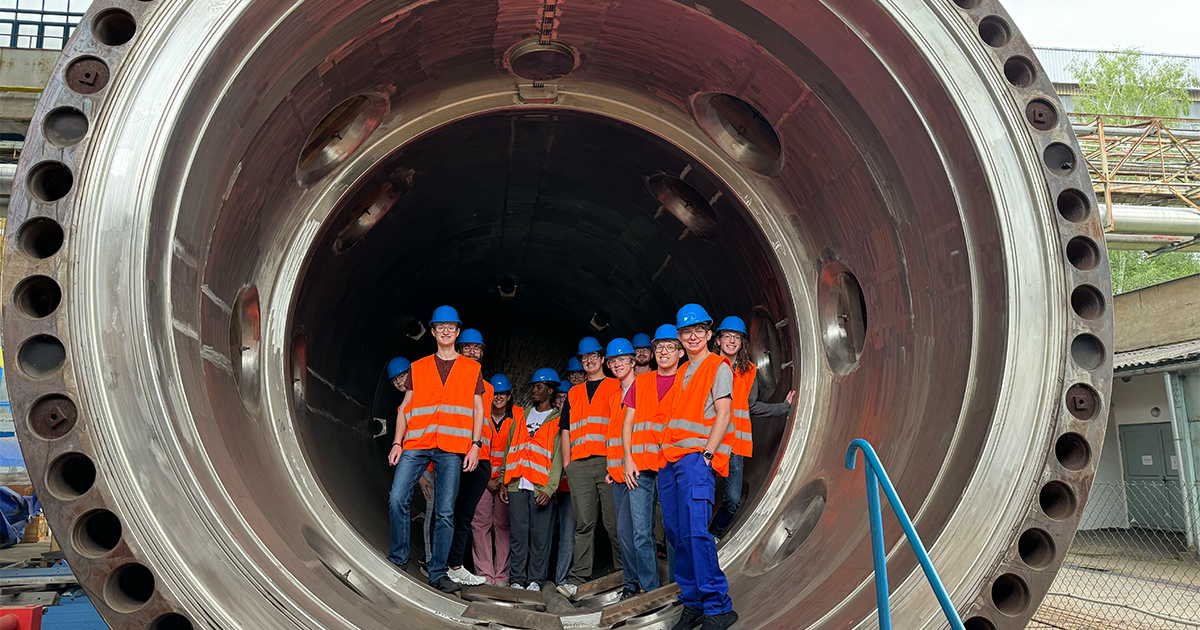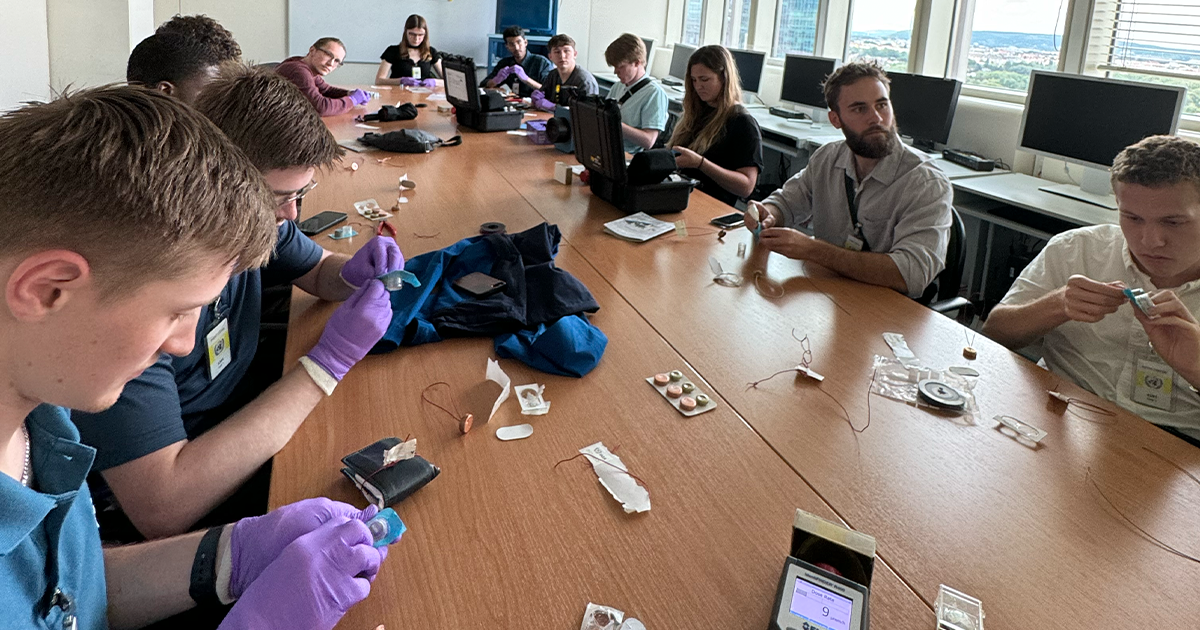NE Students Take Enriching Study Abroad Trip
Owen Johnson had never left the country or run experiments on a nuclear reactor. The rising senior was able to accomplish both during a two-week study abroad trip in May with the Department of Nuclear Engineering.
Johnson was one of 12 students to travel to the Czech Republic for the course, Nuclear Reactor Laboratory Abroad, which was taught by Professor Sandra Bogetic. The students got hands-on experience in nuclear engineering; visited major companies and world organizations; and were exposed to European art, history, and culture.
It was the first time a class from the department has studied abroad since before the Covid pandemic.

“It was a very fulfilling and enriching experience, probably one of the best of my life up to this point,” Johnson said. “Spending two weeks surrounded by not just my peers, but people I study with and take classes with and see in labs, was great. It was very enriching to see how nuclear engineering functions in other countries.”
The mini term was based in Prague, Czech Republic, but included a trip to Vienna, Austria to visit the International Atomic Energy Agency (IAEA) and the United Nations.
The class took a one-week reactor physics course at the Czech Technical University in Prague, where they conducted experiments on reactor operation, flux measurement, and measurements in reactor parameters. On the final day of the trip, the students were able to scram a reactor, creating an emergency shutdown by rapidly inserting the control rods.

“As a nuclear engineer, being able to understand how a reactor actually works is invaluable,” Bogetic said. “We do a lot of reactor physics and safety, but it’s all theoretical. From my experience, there is nothing like being able to do a hands-on experiment with a system. I think it should be mandatory if we can we find a way to make it work.”
A new addition to the itinerary that wasn’t included in past NE study abroad opportunities was visiting Skoda Nuclear Machinery, which is a major manufacturer of nuclear reactor assemblies and supplier of VVER-type primary coolant circuits. The students were able to watch the building of a vessel for a reactor.

They were also able to visit a nuclear power plant and receive a virtual reality tour that was filmed by a drone.
“I wish that all students could do something like this, especially nuclear engineering students, because it’s difficult to find something abroad that fits well within the requirement of graduation,” said Kyra Lawson, one of two PhD students in the class. “I learned so much and it was cool to apply all the things we earned in class to something that we could put our hands on and see for real in real time. I feel so lucky to have gone.”

During the visit to IAEA, the class received a personalized demonstration from people who work in international safeguarding. IAEA trains inspectors that visit nuclear power plants or waste facilities around the world. The demonstration allowed the students to observe the seals and detectors used during the safeguarding process.
“That is not something you find in a lab of a class. It showed some of our students the jobs that you don’t have to necessarily go to grad school for,” Bogetic said. “It gives them idea of the expanding workforce in nuclear engineering and what a reactor operator does. They have never seen how a reactor works so how would they even think that job could be a path for them?”

Outside of the nuclear studies, the students were able to visit the Prague Castle, take a walking tour of the historic center of Prague, and frequent local cafés to sample their cakes and desserts. Bogetic’s five years of taking European history in school helped enlighten the students during the sightseeing.
Many of the students on the trip received a $2,000 scholarship funded by alumni donations via the Nuclear Engineering Fund to help offset some of their expenses.
“Getting that covered by the college was very helpful. My financial situation next semester would have been very difficult without that,” Johnson said. “I would have needed to front the cost for next semester to pay for the trip and the tuition for the four credits. I am very grateful for the assistance.”
To support learning experiences such as these through the Nuclear Engineering Fund, visit giving.utk.edu/ne.
Contact
Rhiannon Potkey (865-974-0683, rpotkey@utk.edu)
